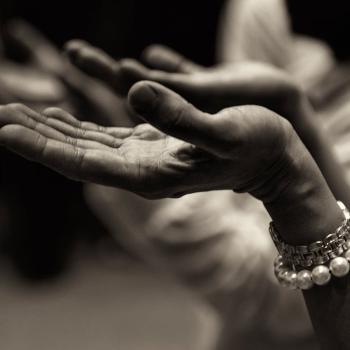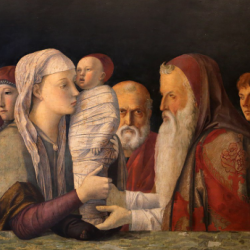Even as the Presbyterian Church (USA) voted in recent days to allow the open ordination of non-celibate GLBT persons (a small but important victory for those of us calling for a fully welcoming and affirming Church), Sojourners magazine online was refusing to run an ad encouraging churches to welcome all families, including those with same-gendered parents. It often seems like one step forward and one step back when it comes to justice for gay, lesbian, bisexual, and transgendered persons in the Church. One has to wonder what impact all this debate and disagreement in the Church is having on gay teens, particularly those sitting in our pews. As congregations argue over scripture and tradition and who is welcome and who is not, many of our GLBT teens are quickly figuring out that there may be no place for them in the Church.
Bryan Currie is a former Baptist minister who now spends his time working directly with GLBT teens in New York City. Because of both his theological background and his passion for justice for these young people, I invited him to share his thoughts on the sexual orientation debate in the Church and the impact it may be having on the young adolescents in our care.
What in your background led you to devote your time specifically to serve GLBT teens?
Although I served in several churches during my ministerial career, through a tangle of circumstances that is beyond the scope of this story the bulk of my career was spent as a youth program consultant and headline speaker for youth worship events across the country. In essence, I was a freelance youth minister.
Many of my ministerial friends felt that I lived a charmed life. I didn't answer to a pastor, board of trustees, or finance committee. The bulk of my work consisted of developing creative programming, preaching, and working directly with kids. When I wasn't on an airplane, I was working from my couch in a pair of pajama pants. My colleagues and "clients" often reminded me that I probably didn't fully appreciate how "good I had it." What they didn't realize was that my southern, conservative, professionally Christian culture was crushing me. They didn't realize this because they didn't know I was gay.
Obviously, as a minister trained in a very conservative tradition, to reveal that I was a homosexual man would not only cause the usual emotional rifts that often come with "coming out," it would also end my career. I decided to come out anyway. I bowed quietly out of ministry circles and moved to New York City, a place with a much more temperate cultural climate. In the Big Apple, where I currently live, I am free to be both a person of faith and a person who is comfortable with his sexual identity. In NYC I stand with one foot planted in each of two divergent cultures. To my gay friends I am a mystery because I am a Christian. To my Christian friends I am an intrigue because I am gay.
How do you respond to young Christians who are struggling with their own sexual orientation and what this means for their future within the Church? What are they to do when they come up against the tension between their faith and their sexuality?
This cultural tension is quickly becoming one of the greatest influences on my work with young people. I currently manage youth programs for a non-profit organization that develops programming for LGBT kids in New York City high schools. Sadly, I find that many of the LGBT young people I work with feel tremendous conflict because their sexuality does not conform to the traditional teachings of their faith. Those who find the courage to reveal their sexual orientation are often alienated by their churches. After years of quietly listening to the church condemn homosexuals and homosexuality, many of these students ultimately abandon their faith. These youth are the ones we most often hear about. Thousands of others continue to live secret lives, afraid of what will happen if they're ever "found out."
LGBT youth—both those who are "out" and those who are still "in"—often feel forced to choose between their sexuality and their spirituality. Some choose their sexuality and abandon their faith. Others choose their faith and work to suppress their sexuality, a fundamental part of who they are. LGBT youth shouldn't be forced to choose. They need more resources made available to them, not less. They need to both worship freely and date freely. They need to grow into whole people, not half people.
I've noticed that the internet is filled with voices working to raise awareness and make the church more inclusive, which is obviously a noble goal. Unfortunately, there seems to be a lack of pastoral voices encouraging LGBT men and women who are not yet ready to fight—people who are still working out how (or whether) they are able to live as both gay and Christian. That's why I recently launched a blog (stillforus.wordpress.com) to help students think about how God and gay can fit together. This blog is the genesis for a program that will help LGBT youth find a home in both the LGBT community and the religious community . . . a program that will help them understand that God is for us.





